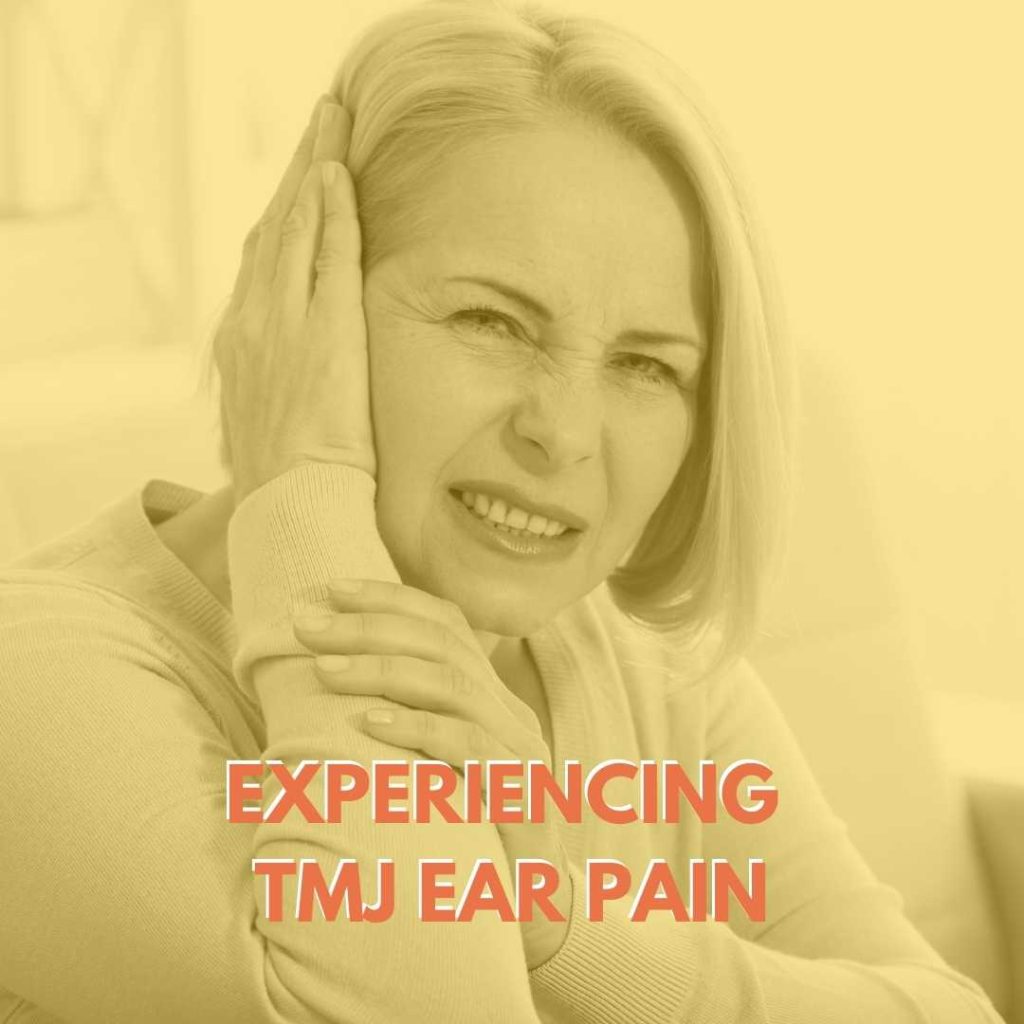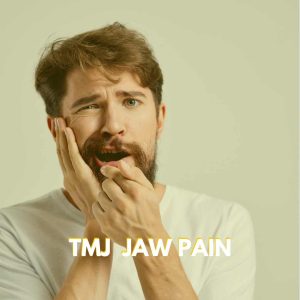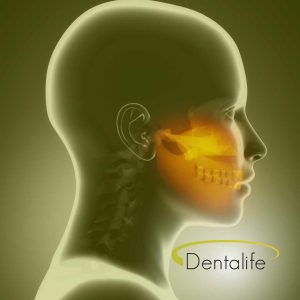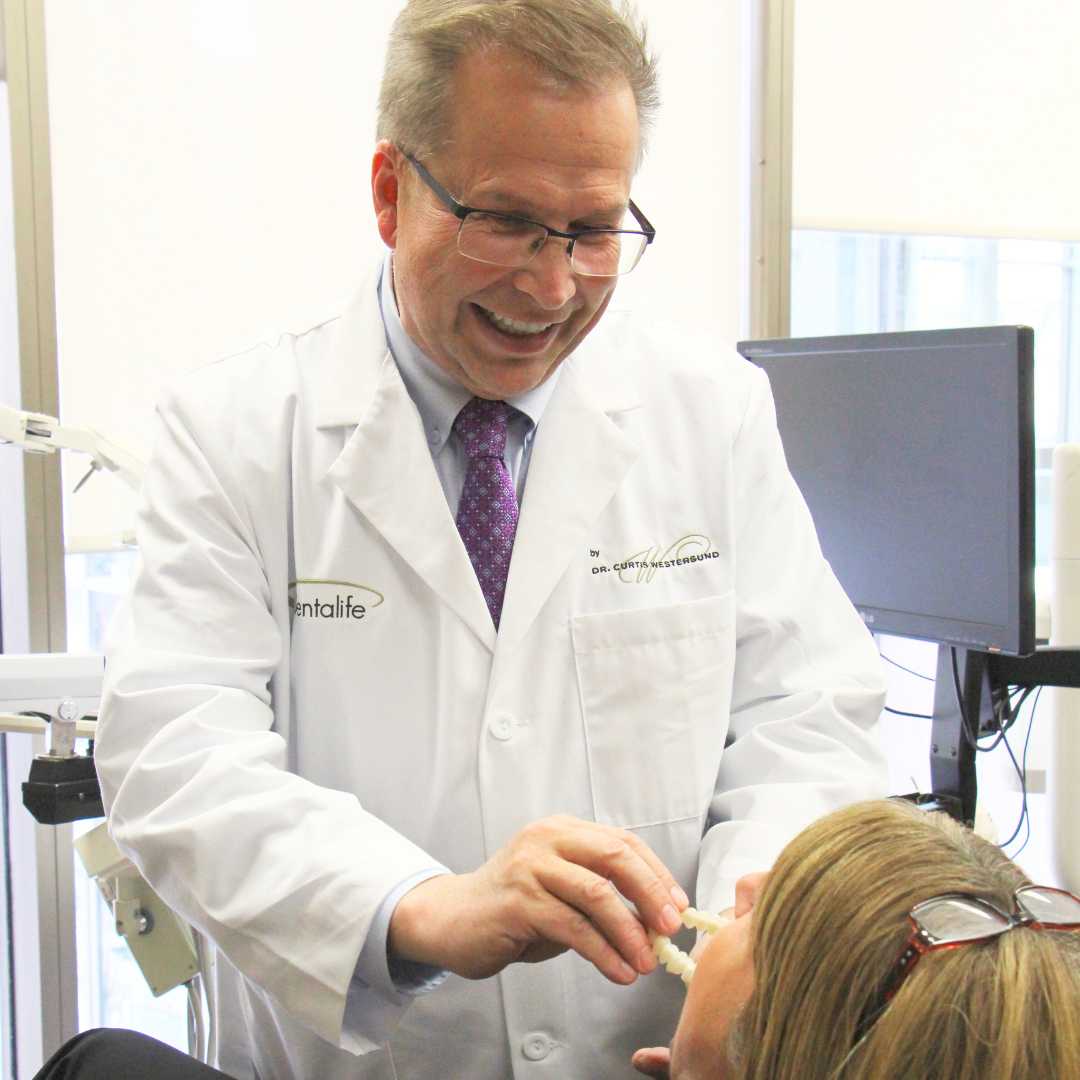Dentalife General dentist and TMJ treatment practitioner in Calgary, Alberta: Dr. Curtis Westersund:
“TMJ ear pain can be a frustrating and uncomfortable experience for those who suffer from it. It can interfere with daily activities such as eating and speaking and impact one’s quality of life. TMJ ear pain symptoms can be painful and distracting, making it difficult to focus on work or enjoy social activities. I’d like to tell anyone who is experiencing TMJ ear pain that you are not alone. Thousands of people in North America are facing this debilitating condition.
In many cases, TMJ ear pain can be treated effectively with the right care and support, and there are several options available to help alleviate the symptoms. If you are experiencing any discomfort or pain related to the TMJ joint, please know that we can provide a diagnosis and recommend a treatment plan tailored to your individual needs. Remember that taking care of your health is a priority, and seeking help when needed is a sign of strength and resilience.”
What exactly is TMJ Ear Pain?
TMJ-related ear pain refers to pain that is experienced in or around the ears as a result of a problem with the function of the Temporomandibular joint (TMJ) or the muscles that control jaw movement. The TMJ is a special sliding hinge joint that connects the jawbone to the skull and is responsible for allowing movement of the jaw during activities such as clenching, eating, speaking, and yawning. If the joint or surrounding muscles become irritated or inflamed, it can result in pain and discomfort in the ear area.
What are the possible causes of TMJ ear pain?
There are several causes of TMJ ear pain, including issues with the Temporomandibular joint (TMJ) itself or the muscles that control jaw movement. One of the most common causes is excessive teeth grinding or clenching, which can put excess strain on the TMJ joint and surrounding muscles.
Misaligned teeth or a misaligned bite can also contribute to TMJ ear pain. Stress and tension can cause muscle tightness and clenching, leading to pain and discomfort in the jaw and ear areas. Some medications can stimulate more clenching. Arthritis, which is inflammation of the joints, can also affect the TMJ and cause pain. In some cases, trauma to the jaw or face, such as from a sports injury or accident, can lead to TMJ ear pain.
What are the symptoms of TMJ ear pain?
TMJ ear pain can cause a variety of symptoms that may be uncomfortable or disruptive to daily life. These symptoms may include
- pain or tenderness in or around the ears
- jaw pain
- difficulty opening or closing the jaw
- clicking or popping sounds when moving the jaw
- headaches
- neck pain
- and tinnitus (ringing in the ears)
In some cases, individuals may experience
- dizziness
- vision problems
- or difficulty hearing
The severity and frequency of these symptoms can vary depending on the cause of the TMJ ear pain and can range from mild to severe.
How is TMJ ear pain diagnosed?
TMJ ear pain is typically diagnosed by a dentist or medical doctor through a physical examination of the jaw and surrounding areas. During the examination, your dentist or medical doctor will look for signs of tenderness, swelling, or inflammation in the jaw and ears. They may also check for any clicking or popping sounds when moving the jaw, as well as evaluate the range of motion of the jaw.
In some cases, imaging tests such as X-rays, CT scans, or MRIs may be ordered to get a better view of the TMJ joint and surrounding structures. The imaging tests can help to identify any abnormalities or damage to the joint, such as arthritis or a displaced disc. Once the underlying cause of the TMJ ear pain is identified, the dentist or medical doctor can provide an appropriate treatment plan to address the condition.
How is TMJ ear pain treated?
The treatment of TMJ ear pain may vary depending on the cause and severity of the condition. In some cases, conservative, non-invasive treatments may be recommended, such as self-care measures like avoiding hard or chewy foods, using heat or ice packs, and performing gentle jaw stretches and exercises. Over-the-counter pain medications such as ibuprofen or acetaminophen may be recommended to alleviate pain and discomfort. In more severe cases, prescription medication such as muscle relaxants or anti-inflammatory drugs may be used.
In a variety of cases, the dentist or doctor may recommend dental treatments such as dental appliances or occlusal adjustments to correct bite problems that are contributing to TMJ ear pain.
In cases where the treatments described above are not effective, more invasive treatments such as injections or surgery may be necessary to correct the underlying issue.
TMJ treatment practitioner Dr. Curtis Westersund at Dentalife in Calgary downtown:
“Living in pain is not living at all. So please don’t wait. Waiting will always make things worse. Schedule a diagnosis and evaluation of your options. Make an appointment today.”




